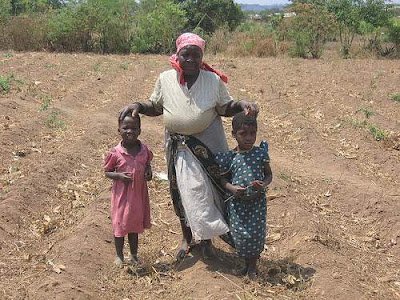Iness was born with two club feet. They got so bad she eventually could not attend school.
If she had been born with club feet in the UK, as 1 or 2 in 1000 British children are, she would have undergone extensive surgery and possibly been left with scarring and in pain. This sort of surgery and subsequent treatment isn't available in countries such as Malawi, where they just don't have the medical or financial resources to support it. Nor can the patients cope with long drawn out treatments. Iness' mother said, “It was such a burden for me to come every week. I am poor and to find transport money was like struggling for breath.” A different way to treat babies in their first year of life, while it is still possible to avoid complex surgery, was urgently needed.

Here in the UK, the BBC is currently showing a series of television programmes (Superdoctors) which looks at various high-tech medical procedures, but one of these programmes is instead looking at the work of Steve Mannion, an orthopaedic surgeon from Blackpool, who spends two out of every four weeks in Malawi in southern Africa. When he first started visiting Malawi, he was one of only two orthopaedic surgeons for a population of about 12 million. He had to find a solution for the children with club feet using the resources available in the area. He found a low-tech method of treating the condition using a type of physiotherapy which would allow non-medical officers, not doctors, to treat patients. The results have been so successful, better than those in the UK, that this low-tech method is being introduced into this country.
The cost of the surgical robots featured in the television programme is about £12 million or roughly $24 million. How many children in the third world could be treated for that sort of money to enable them to walk again, to go to school and earn a living? As opposed to a robot which does work normally performed out by a surgeon. The hospital carrying out this project was built with support from the
Beit Trust of the UK, and is managed by the American
CURE International, paying the running costs.
I tend to be wary about faith-based charities but this one says it will not turn away a patient due to an inability to pay, ethnic background or religious affiliation. All children are treated free of charge and as a result Iness is now able to attend school again. Chisomo, another patient, and his family are Moslem. His mother said, “I have been encouraged. I think God deserves all the glory. I will leave to testify to people and even tell my son as he grows up that a Christian hospital healed him, a hospital without discrimination.” That warms my heart - a secondary but very important benefit of better trust and understanding.
See also
Feet First, a charity set up by Steve Mannion himself in 2004.
























